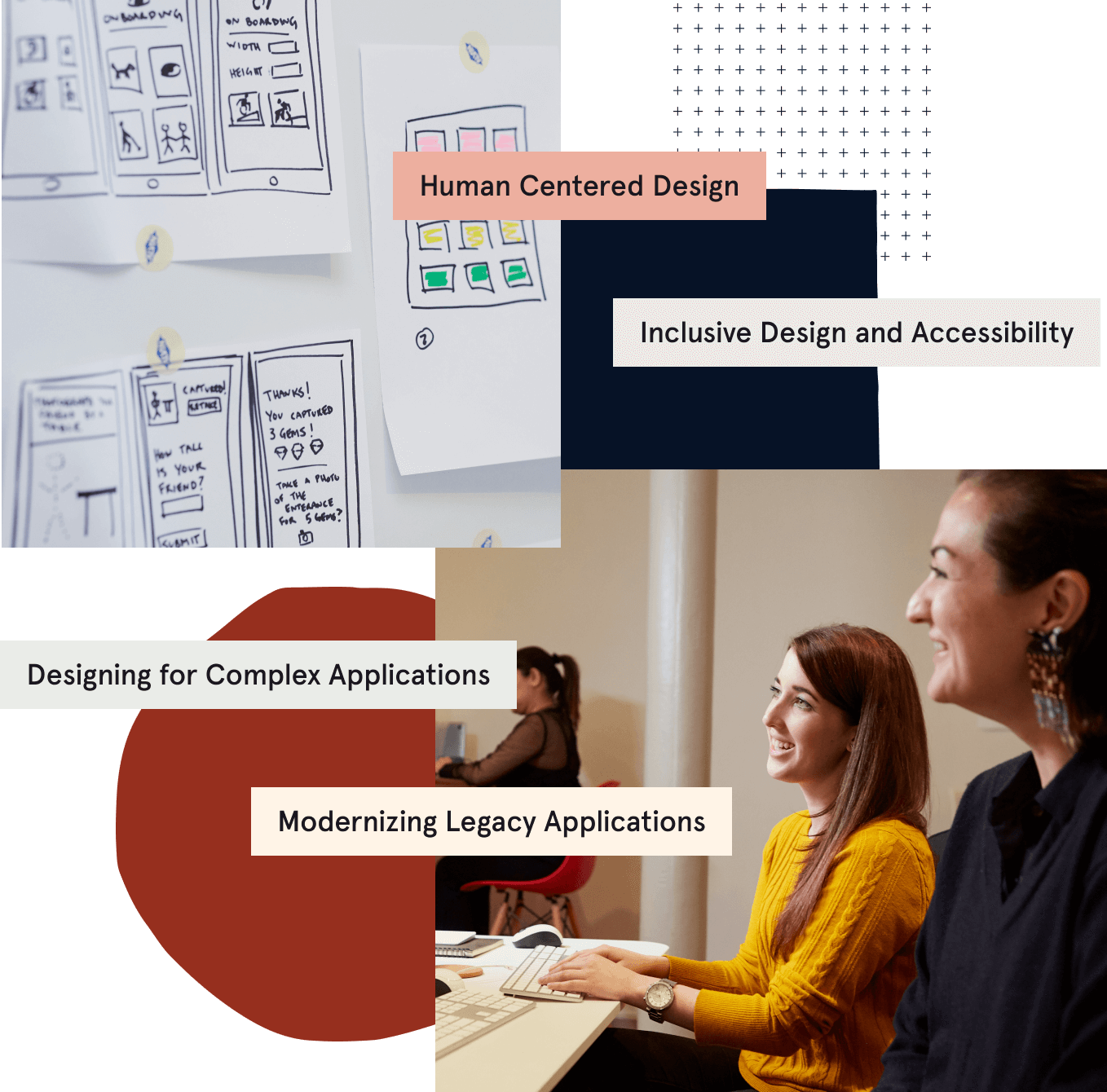The demand for software engineering expertise is growing exponentially, making the skills required ever-changing. With businesses increasingly relying on software solutions to streamline operations, enhance customer experiences, and drive innovation, the need for skilled software engineers has never been greater. From developing mobile applications to designing complex algorithms, software engineers play a vital role in shaping the digital landscape.
As industries across the board embrace digital transformation, the demand for software engineering talent is growing in every sector, including finance, healthcare, e-commerce, and government. Companies are looking for professionals who possess a deep understanding of programming languages, system architecture, and agile methodologies. Not only does this surge in demand signify the critical role software engineering plays in modern business, but it also presents abundant opportunities for successful partnerships in this dynamic and ever-evolving field.
Choosing the right software professionals for your needs is important: Their expertise will have a significant impact on the success of your projects. The right professional has both the necessary technical skills and a deep understanding of your specific industry and business goals. They can analyze your requirements, offer tailored solutions, and deliver results that align with your objectives. Making the wrong choice can lead to costly setbacks, inefficient workflows, and missed opportunities. By investing time and effort into selecting the right software professionals, you ensure that your projects are executed well — enabling your business to thrive in the digital landscape.
In the world of software engineering, the decision between hiring a contractor or a consultant can be a pivotal one for businesses and organizations. What’s the difference between the two? In this blog post, we will delve into the key characteristics and considerations when choosing between these two types of software professionals, including factors such as project duration, cost, expertise, and project management requirements.
Contractors
A software engineering contractor is usually hired to just get the job done. They are hired on a temporary or short-term basis to provide specialized skills and expertise. These contractors can be self-employed or work as part of a contracting firm, and they are engaged by organizations to fulfill specific technical requirements. The role of a software engineering contractor involves working with clients to understand their project needs, developing software solutions, and delivering high-quality code within the agreed-upon timeline.
Contractors often bring experience in various programming languages, frameworks, and development methodologies. They can be responsible for tasks such as software design, programming, testing, and debugging. The primary advantage of hiring software engineering contractors is the flexibility they offer in scaling resources and expertise according to project demands — making them a cost-effective option for short-term or specialized projects.
“Tandem recognizes the importance of staying ahead in a rapidly evolving landscape. We use contractors in specific cases when we need a niche skillset that’s very targeted (think some obscure plugin for an ERP or an outdated technology). From a business standpoint, it doesn’t make sense financially for us to learn some technologies. We also tend to use contractors when we have a well defined and decomposed system and just need folks to execute but not provide advice on architecture, process, technology selection, product decisions — those are what true consultants are good at.” –JC Grubbs, CEO of Tandem
When hiring a software engineering contractor, here are a few important considerations to keep in mind:
- Clearly define project requirements: Before engaging a contractor, ensure that you have a clear understanding of your project’s scope, objectives, and deliverables. Clearly communicate these requirements to the contractor to confirm alignment from the start.
- Evaluate technical expertise: Assess the contractor’s technical skills and knowledge of programming languages, frameworks, and tools relevant to your project. Review their past projects and references to gauge their proficiency and suitability for your specific needs.
- Assess communication and collaboration abilities: Effective communication is crucial for successful collaboration. Evaluate the contractor’s communication skills, responsiveness, and ability to work as part of a team. Clear and frequent communication channels are essential to ensure project progress and timely updates.
- Consider cultural fit: Assess how well the contractor’s working style aligns with your organization’s culture and values. A good cultural fit can enhance collaboration and productivity, leading to a smoother working relationship.
- Manage and oversee the work: While contractors work independently, it’s essential to have a client partner or point of contact within your organization who can provide guidance, clarify requirements, and oversee the progress and work delivered by the contractor.
By considering these factors, you can increase the likelihood of hiring a software engineering contractor who is well-suited to your project’s needs and who can contribute effectively to its successful completion.
Consultants
The primary focus of a software engineer consultant is to help organizations make informed decisions related to their software engineering practices and projects. They act as a trusted advisor, driving innovation by assisting with tasks like:
- software project planning
- technology selection
- software architecture design process optimization, and
- implementation strategies
The role of a consultant goes beyond hands-on coding and development — Tandem consultants work closely with clients to understand their business objectives, analyze existing systems and processes, identify areas for improvement, and provide recommendations for optimized software solutions. Consultants bring a fresh perspective, drawing from their broad industry experience and exposure to different software development methodologies and tools. By engaging a software engineering consultancy like Tandem, companies can leverage external expertise, optimize their software development processes, and achieve their project goals more efficiently.
Not only does hiring a software engineer consultant allow companies to tap into specialized skills and knowledge while focusing on their core business objectives, but this approach also brings several advantages to organizations:
- Expertise and Industry Knowledge: Software engineer consultants possess extensive expertise and deep industry knowledge. They stay up-to-date with the latest software engineering trends, best practices, and emerging technologies. Their insights and experience can help organizations make informed decisions and stay ahead of the curve in a rapidly evolving technology landscape.
- Strategic Guidance: Consultants provide strategic guidance tailored to the specific needs of the organization. They can assess existing software systems, identify areas for improvement, and offer recommendations for optimizing processes, enhancing efficiency, and achieving business goals. Their strategic input helps align software engineering efforts with the organization’s overall objectives, driving organizational growth.
- Problem-Solving Capabilities: Consultants are skilled problem solvers. They excel at analyzing complex technical challenges and finding effective, long-term solutions. They bring fresh perspectives to address software engineering problems and can help overcome obstacles or bottlenecks that may hinder project progress.
- Objective Perspective: Being external to the organization, software engineer consultants can provide an objective viewpoint. They are not influenced by internal politics or biases and can offer unbiased assessments and recommendations. This objectivity can lead to more accurate evaluations and better decision-making,
- Mentoring and Skill Development: Consultants often play a mentoring role, sharing their knowledge and expertise with internal teams. They can:
- guide and mentor developers
- conduct code reviews
- offer training sessions
- help them enhance their technical skills
- advise on how to adopt best practices, and
- improve the quality and efficiency of software development within the organization.
This knowledge transfer contributes to long-term skill development and increased team efficiency.
- Cost and Time Efficiency: Hiring a software engineer consultant can be cost-effective compared to hiring a full-time employee with similar expertise. Organizations can engage consultants for specific projects or duration, avoiding long-term overhead costs. Additionally, consultants bring specialized skills and experience, allowing them to work efficiently and deliver results within shorter timeframes.
By utilizing the benefits of a software engineer consultant, organizations can tap into valuable expertise, receive strategic guidance, and speed up their software engineering efforts, leading to improved efficiency, innovation, and competitive advantage.
“Contractors are individuals hired for specific tasks, adhering strictly to predefined plans. While effective, their role is limited to execution. In contrast, consultants provide a broader range of services. They not only execute tasks according to a plan but also contribute to establishing team culture and implementing best practices. Consultants like Tandem offer valuable insights in refining project plans, going beyond execution to help shape and optimize strategies for success.” –Sergio Rabiela, SVP of Technology at Beyond Finance
While the ROI of hiring a software engineering contractor versus a consultant may not always be easily quantifiable, it is important to consider the specific objectives, timeline, and complexity of the project. Evaluating the potential benefits, cost savings, and long-term value of each option can help determine the best choice for a given project.
By understanding the nuances and unique value propositions of software contractors and consultants, stakeholders can make more informed decisions and select the most suitable option for their software engineering needs.
If you’re curious to learn more about Tandem’s implementation of these strategies, we encourage you to visit our Beyond Finance case study, where you can find extensive information and insights.









